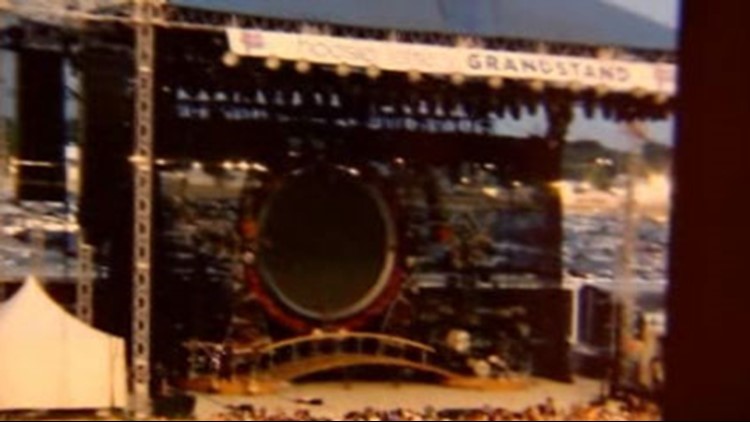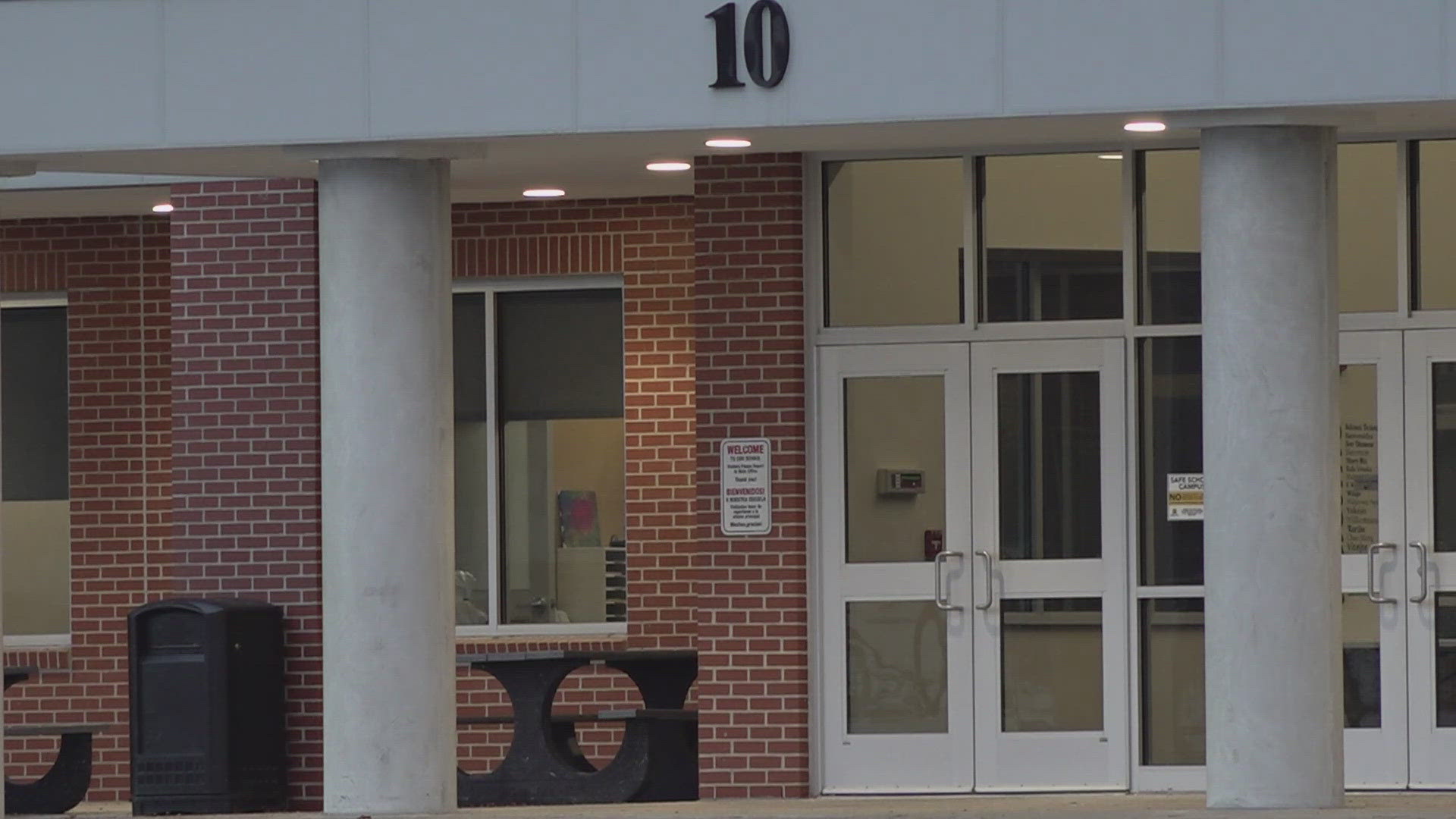INDIANAPOLIS - Four union stagehands were in the stage rigging the night it crashed to the ground at the Indiana State Fair.
Nathan Byrd died. Three others made it out alive, with unforgettable injuries.
Now for the first time and only on Channel 13, one of the men who survived reveals what happened before, during and after the collapse and his incredible twist of fate.
Enoch Vinegar was one of four stagehands assigned to run spotlights for the Sugarland concert August 13th. He was 35 feet above the stage.
"In the rigging, in the trussing, that's where our spot chairs were at, above the video. I was above the video screen," he said, describing his location when the scaffolding came crashing down.
"I'm blessed. I'm a miracle to be alive," he said, nursing his injuries. "I could have been buried right along with Nathan."
Nathan Byrd, who was assigned to a spotlight off to the side of him, was killed.
"I mean, we're all brothers in the local, and when one gets hurt, we're all concerned. When one dies..we all feel it."
Steve Stoyer, who was less than eight feet from Enoch in the center, was critically wounded.
Kyle Covert, who sat to Enoch's upper right, had broken limbs and bruising.
13 Investigates asked him, "do you think anybody from Local 30 should have died on August 13th?"
"No!" he responded, "I'm not going to get into that, but no," he said, side-stepping the controversy over who is responsible.
Enoch says the spotlight operators were uneasy over the flashes they saw in the sky and wanted to come down.
They were wearing headsets to communicate with Sugarland's lighting director.
"We were concerned about the lightning. We didn't know about the wind. We were just concerned about the lightning hitting the structure," he explained.
Lightning in and of itself should have been enough to bring the men down. But that didn't happen.
Video shot moments before the collapse by concert goers backs up Enoch's concerns. He says moments later a sudden whoosh rushed under the canopy.
"That part of the roof that had actually blown off. It was flapping in the wind like..and then we felt, or I felt the stage kind of do a little tweak and then it started going down," he told 13 Investigates.
Carried by the force, the corner closest to Enoch fell forward as he gripped a steel beam and road it to the ground; his hope resting on a prayer.
"I just said, 'oh, Lord help me.' That's about all the time I had to say," he added.
He can't remember hitting the ground, only the adrenaline that helped him to climb out once he realized he had fallen mostly on top of the steel pile.
"They yelled my name. I was just sitting there. They yelled my name because they were looking for the four of us. And when they yelled my name, I hollered out, 'I'm here,'" he said, reflecting back to those first few moments. He was bleeding and cut to the bone, but alive.
"I'm the only one that got up and walked away, but I still have injuries, and I'm still going through rehabilitation. Just had knee surgery, still have some back problems," he said, reiterating once again the feeling of being "blessed."
Unable to work and without insurance, Enoch hoped the community's generosity would help offset his medical costs. But he was denied any portion of the $900,000 collected by the Indiana State Fair relief fund.
The administrator says only those admitted to the hospital the night of the collapse qualify. Enoch was treated for six hours in the emergency room and sent home.
Now he wants to get in front of the New Yorker who set up the payout for the relief fund.
"You've asked to meet with [State Fair tragedy compensation specialist] Mr. [Kenneth] Feinberg?," 13 Investigates asked.
"Yes, I have," he said, "I just want to have a face to face with him and say, 'Look, I was injured,'" he explained. "You know just because the hospital told me to go home, doesn't mean that I wasn't injured," he pointed out.
With weeks of healing still ahead and a potential lawsuit pending, Enoch has time to rethink his work, and the day his world collapsed around him.
13 Investigates asked him the big question, "Why didn't you just come down? Why didn't you just say, 'No, we're not going to stay up here?'"
"That's part of our job. I mean, we can be fined for postponing or delaying a show. We can't do that," he said expressing unwavering loyalty to the job he was called to do.
Enoch says he has no hesitation about going back to work as a stagehand. But that's still a ways off. He's walking with a limp, and is still undergoing physical therapy after knee surgery.
No date has been set for him to meet with Ken Feinberg of New York about getting help from the Indiana Relief Fund.
Enoch was also part of the crew that helped build the stage rigging, but declined to talk about that because of a possible lawsuit against the state.



